Stroke »
Stroke Rehabilitation
How to submit an article:
- Registered users can submit any published journal article that has a unique DOI (Digital Object Identifier) name or link to Research Hub.
- For example, you can paste the full DOI link:
https://doi.org/10.1109/5.771073or just the DOI name:10.1109/5.771073into the field above and click submit. - The person who is first to submit a valid article to Research Hub will forever be credited for it, and every article submission earns you +6 Research Points.
Also known as: Post-Stroke
Sub-Topics:
Related Topics
Published research studies are articles that present the findings of original research that has undergone a peer-review process and has been made publicly available in scholarly journals, books or other media.

Tongue Acupuncture for the Treatment of Poststroke Aphasia: A Systematic Review and Meta-Analysis
2022 Oct 03 Evidence-Based Complementary and Alternative Medicine Yang S, Li L, Jiang R, Ding H, Xu F, Ge L, et al.
Systematic Review Meta-Analysis Tongue Acupuncture Stroke Rehabilitation Post-Stroke AphasiaMeta-analysis has strong implications of the effectiveness of tongue acupuncture, especially when combined with conventional therapies, in treating poststroke aphasia. This holistic approach demonstrates significant improvements in patient outcomes.
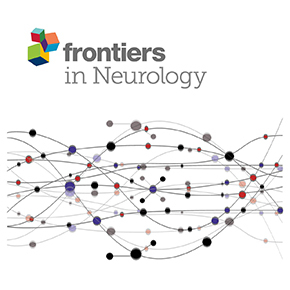
Effects of Acupuncture in Ischemic Stroke Rehabilitation: A Randomized Controlled Trial
2022 Jun 23 Frontiers in Neurology Li L, Zhu W, Lin G, Chen C, Tang D, Lin S, et al.
The clinical efficacy of arm 1 and arm 2 (acupuncture groups) was superior to that of the control group, but there was no difference between the effects of the two acupuncture groups.
Randomised Controlled Trial Acupuncture Stroke
Traditional Chinese Medicine Interventions in the Rehabilitation of Cognitive and Motor Function in Patients With Stroke: An Overview and Evidence Map
2022 May 17 Frontiers in Neurology Choi TY, Jun JH, Lee HW, Yun JM, Joo MC, Lee MS
Systematic ReviewAcupuncture shows potential benefits in stroke rehabilitation, particularly for shoulder-hand syndrome post-stroke.
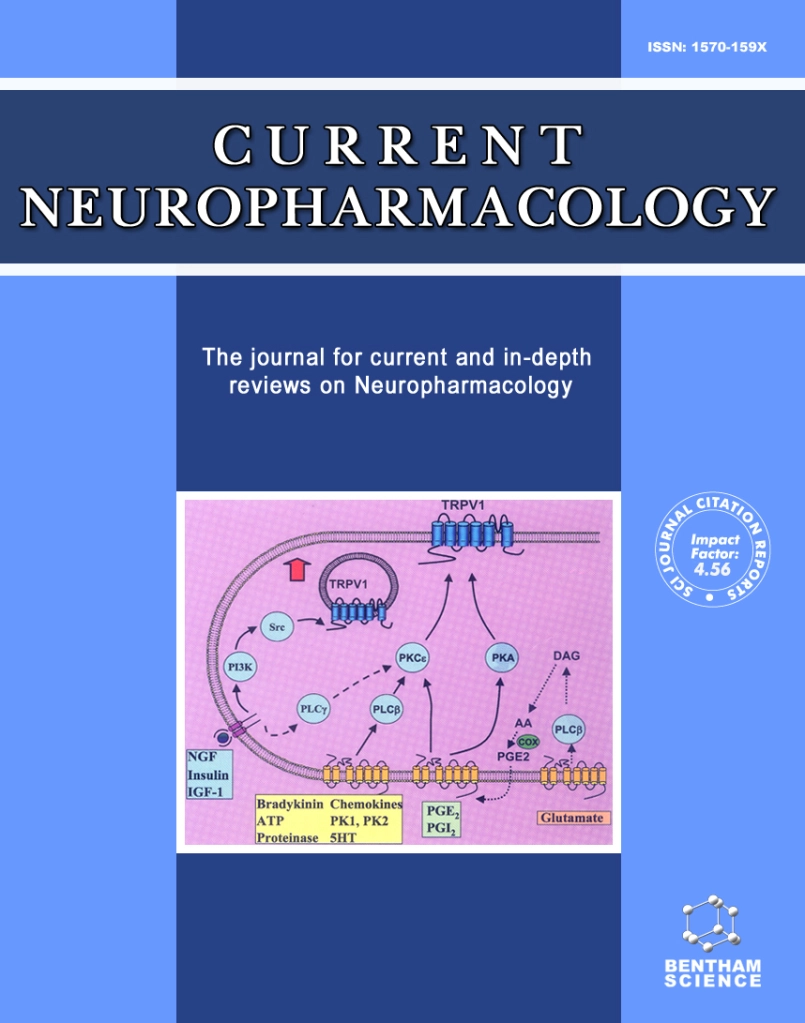
Potential Mechanisms and Clinical Effectiveness of Acupuncture in Depression
2022 Apr Current Neuropharmacology Yang NN, Lin LL, Li YJ, Li HP, Cao Y, Tan CX, et al.
Review Article Brain Inflammation Neuroplasticity Depression Chronic Pain-Related Depression Post-Stroke DepressionAcupuncture could help manage different types of depression by increasing neuroplasticity, decreasing brain inflammation, and reducing side effects of conventional antidepressant treatment.
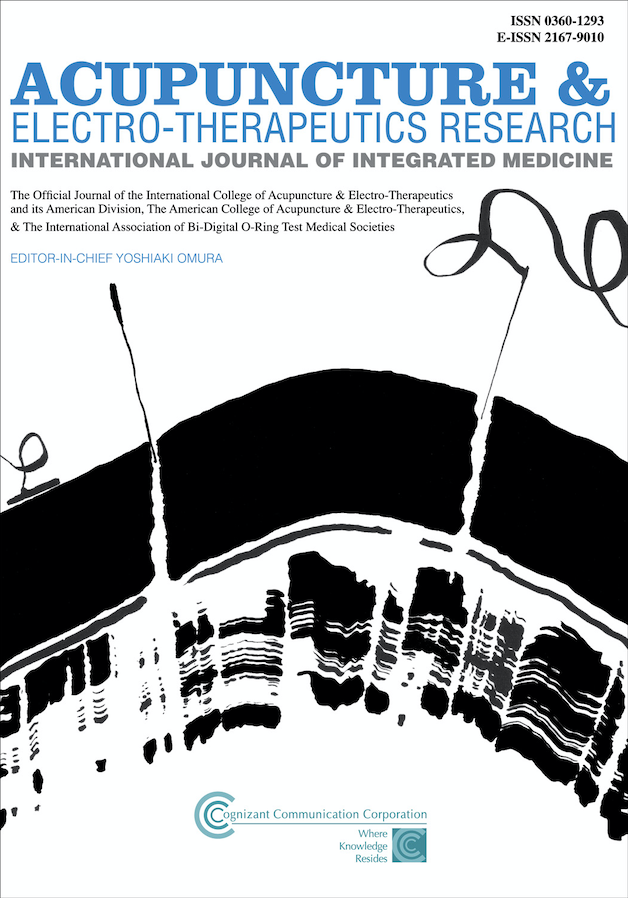
Acupuncture for the Adjunctive Therapy of Post-stoke Fatigue: A Systematic Review and Meta-analysis
2021 Dec 28 Acupuncture & Electro-Therapeutics Research Chen Y, Peng M, Li Y
Systematic Review Meta-Analysis Stroke Rehabilitation Acupuncture FatigueCompared with conventional treatment, acupuncture as an adjuvant therapy can significantly reduce the incidence of post-stroke fatigue.
Research insights are moderated by the Research Hub team and offer an at-a-glance overview of interesting research findings.

2022 Evidence-Based Complementary and Alternative Medicine
Meta-analysis has strong implications of the effectiveness of tongue acupuncture, especially when combined with conventional therapies, in treating poststroke aphasia. This holistic approach demonstrates significant improvements in patient outcomes.
Systematic Review Post-Stroke Aphasia Tongue Acupuncture
Tongue Acupuncture for the Treatment of Poststroke Aphasia: A Systematic Review and Meta-Analysis
Yang S, Li L, Jiang R, Ding H, Xu F, Ge L, et al.

2022 Frontiers in Neurology
Acupuncture shows potential benefits in stroke rehabilitation, particularly for shoulder-hand syndrome post-stroke.
Systematic Review
Traditional Chinese Medicine Interventions in the Rehabilitation of Cognitive and Motor Function in Patients With Stroke: An Overview and Evidence Map
Choi TY, Jun JH, Lee HW, Yun JM, Joo MC, Lee MS

2022 Current Neuropharmacology
Acupuncture could help manage different types of depression by increasing neuroplasticity, decreasing brain inflammation, and reducing side effects of conventional antidepressant treatment.
Review Article Brain Inflammation Chronic Pain-Related Depression Depression Neuroplasticity Post-Stroke Depression
Potential Mechanisms and Clinical Effectiveness of Acupuncture in
Depression
Yang NN, Lin LL, Li YJ, Li HP, Cao Y, Tan CX, et al.

2021 Acupuncture & Electro-Therapeutics Research
Compared with conventional treatment, acupuncture as an adjuvant therapy can significantly reduce the incidence of post-stroke fatigue.
Systematic Review Acupuncture Fatigue
Acupuncture for the Adjunctive Therapy of Post-stoke Fatigue: A Systematic Review and Meta-analysis
Chen Y, Peng M, Li Y

2021 Evidence-Based Complementary and Alternative Medicine
Acupuncture, when combined with other treatments, is an effective therapy for treating swallowing difficulties experienced after a stroke.
Systematic Review Dysphagia
The Effectiveness of Acupuncture for Dysphagia after Stroke: A Systematic Review and Meta-Analysis
Zhong, L., Wang, J., Li, F., et al.
Review Articles
Review articles summarise and critically evaluate the current state of research on a specific topic or field by synthesising multiple primary research studies.

Tongue Acupuncture for the Treatment of Poststroke Aphasia: A Systematic Review and Meta-Analysis
2022 Oct 03 Evidence-Based Complementary and Alternative Medicine Yang S, Li L, Jiang R, Ding H, Xu F, Ge L, et al.
Systematic Review Meta-Analysis Tongue Acupuncture Stroke Rehabilitation Post-Stroke AphasiaMeta-analysis has strong implications of the effectiveness of tongue acupuncture, especially when combined with conventional therapies, in treating poststroke aphasia. This holistic approach demonstrates significant improvements in patient outcomes.

Traditional Chinese Medicine Interventions in the Rehabilitation of Cognitive and Motor Function in Patients With Stroke: An Overview and Evidence Map
2022 May 17 Frontiers in Neurology Choi TY, Jun JH, Lee HW, Yun JM, Joo MC, Lee MS
Systematic ReviewAcupuncture shows potential benefits in stroke rehabilitation, particularly for shoulder-hand syndrome post-stroke.

Potential Mechanisms and Clinical Effectiveness of Acupuncture in Depression
2022 Apr Current Neuropharmacology Yang NN, Lin LL, Li YJ, Li HP, Cao Y, Tan CX, et al.
Review Article Brain Inflammation Neuroplasticity Depression Chronic Pain-Related Depression Post-Stroke DepressionAcupuncture could help manage different types of depression by increasing neuroplasticity, decreasing brain inflammation, and reducing side effects of conventional antidepressant treatment.

Acupuncture for the Adjunctive Therapy of Post-stoke Fatigue: A Systematic Review and Meta-analysis
2021 Dec 28 Acupuncture & Electro-Therapeutics Research Chen Y, Peng M, Li Y
Systematic Review Meta-Analysis Stroke Rehabilitation Acupuncture FatigueCompared with conventional treatment, acupuncture as an adjuvant therapy can significantly reduce the incidence of post-stroke fatigue.

Acupuncture plus Rehabilitation for Unilateral Neglect after Stroke: A Systematic Review and Meta-Analysis
2021 Jan Evidence-Based Complementary and Alternative Medicine Hou, Y., Liu, Y., Li, M., et al.
Systematic Review Meta-Analysis Stroke RehabilitationAcupuncture combined with rehabilitation was more effective in improving the motor function and the ability of daily living.
Clinical Trials
Clinical trials are research studies that involve people and are conducted to evaluate the safety and efficacy of new treatments or interventions, such as drugs, medical devices, or behavioural therapies.

Effects of Acupuncture in Ischemic Stroke Rehabilitation: A Randomized Controlled Trial
2022 Jun 23 Frontiers in Neurology Li L, Zhu W, Lin G, Chen C, Tang D, Lin S, et al.
The clinical efficacy of arm 1 and arm 2 (acupuncture groups) was superior to that of the control group, but there was no difference between the effects of the two acupuncture groups.
Randomised Controlled Trial Acupuncture Stroke
Electroacupuncture for post-stroke overactive bladder: a multi-centre pilot randomized controlled trial
2020 Jul 09 Acupuncture in Medicine Chen H, Wang C, Zhou M, Yan Chan P, Lo Yam L, Lok Lam W, et al.
A six-session EA treatment was feasible and appeared to reduce OAB symptoms in post-stroke patients. Further fully powered trials are warranted to confirm the efficacy of EA for those with post-stroke OAB.
Randomised Controlled Trial Stroke Rehabilitation Overactive Bladder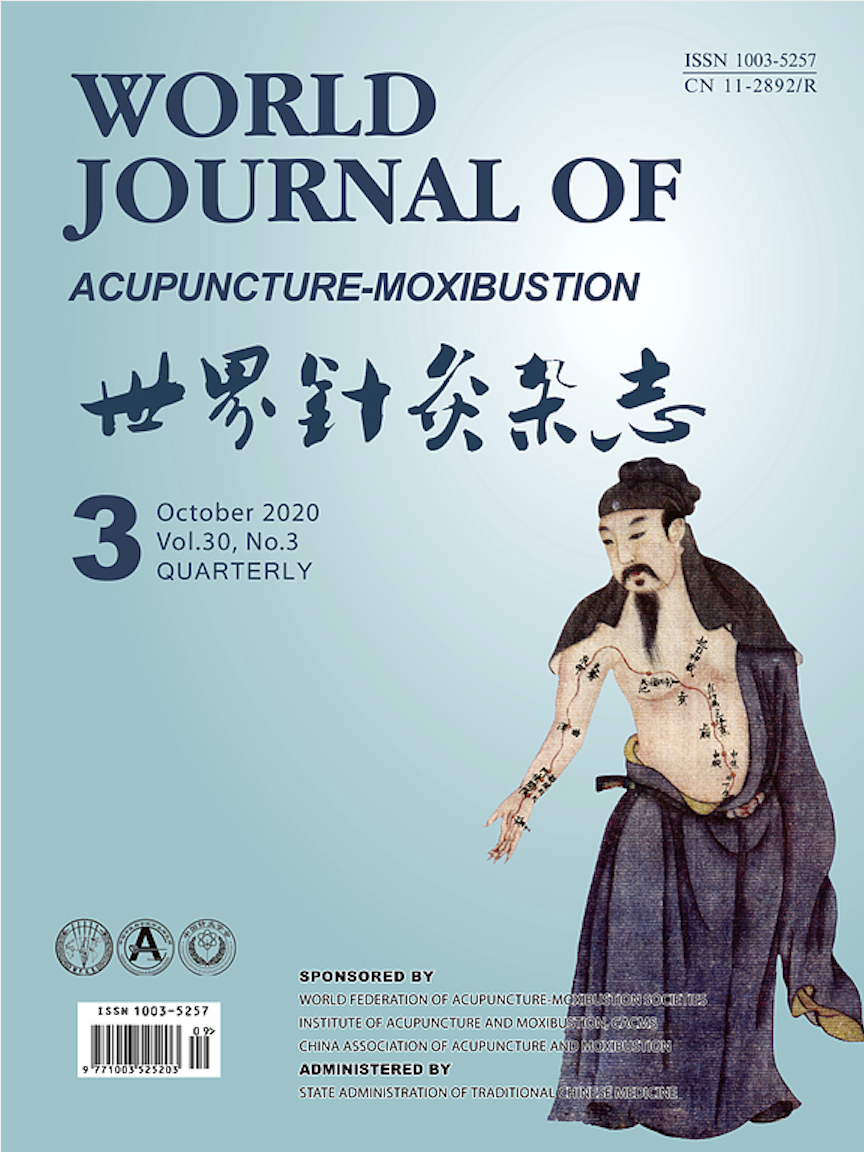
Evaluation of the curative effect of acupuncture manipulation of regulating governor vessel and unblocking brain on the patients with post stroke depression associated with anxiety
2018 Mar World Journal of Acupuncture-Moxibustion WANG Y, HAN Y, HU Y, ZHANG L
Acupuncture manipulation of regulating the governor vessel and unblocking brain demonstrated superior effects on anxiety state and motor function in post-stroke depression patients compared to escitalopram, with rapid onset for depression improvement and equivalent long-term efficacy, while both methods were equally effective in improving activities of daily living.
Randomised Controlled Trial Acupuncture Anxiety Post-Stroke DepressionStudy Protocols
Published study protocols are detailed plans that outline the objectives, methodology, statistical analyses, and organisation of a research study that have been made publicly available for others to review and use as a reference.

Efficacy and safety of electroacupuncture combined with Suanzaoren decoction for insomnia following stroke: study protocol for a randomized controlled trial
2021 Jul 24 BMC Complementary Medicine and Therapies Huang H, Yang S, Mei Z, Huang Y, Chen M, Mei Q, et al.
This study will contribute to assessing whether the combination of these two therapies is more beneficial for post-stroke insomnia than their independent use, and the results of this clinical trial will improve our understanding of the possible mechanisms underlying the effects of combination therapies.
Study Protocol Electroacupuncture Suan Zao Ren Tang Stroke Rehabilitation
The efficacy and safety of Jiedu Tongluo granules for treating post-stroke depression with qi deficiency and blood stasis syndrome: study protocol for a randomized controlled trial
2018 May 10 BMC Complementary Medicine and Therapies Zhao A, Qiu W, Mao L, Ren J, Xu L, Yao M, et al.
In conclusion, this prospective study will demonstrate that the Jiedu Tongluo granules (JDTLG) with conventional treatment is able to effectively and safely treat post-stroke depression (PSD) with qi deficiency and blood stasis syndrome, thereby providing a new direction for treating PSD with minimal side effects.
Study Protocol Stroke RehabilitationPresentation Slides

Systematic Review
Meta-analysis has strong implications of the effectiveness of tongue acupuncture, especially when combined with conventional therapies, in treating poststroke aphasia. This holistic approach demonstrates significant improvements in patient outcomes.
Yang S, Li L, Jiang R, Ding H, Xu F, Ge L, Kuang P, Wang Z

Systematic Review
Acupuncture shows potential benefits in stroke rehabilitation, particularly for shoulder-hand syndrome post-stroke.
Choi TY, Jun JH, Lee HW, Yun JM, Joo MC, Lee MS

Review Article
Acupuncture could help manage different types of depression by increasing neuroplasticity, decreasing brain inflammation, and reducing side effects of conventional antidepressant treatment.
Yang NN, Lin LL, Li YJ, Li HP, Cao Y, Tan CX, Hao XW, Ma SM, Wang L, Liu CZ

Systematic Review
Compared with conventional treatment, acupuncture as an adjuvant therapy can significantly reduce the incidence of post-stroke fatigue.
Chen Y, Peng M, Li Y

Systematic Review
Acupuncture, when combined with other treatments, is an effective therapy for treating swallowing difficulties experienced after a stroke.
Zhong, L., Wang, J., Li, F., Bao, X., Liu, H., & Wang, P.

Systematic Review
Acupuncture combined with rehabilitation was more effective in improving the motor function and the ability of daily living.
Hou, Y., Liu, Y., Li, M., Ning, B., Wen, Z., & Fu, W.

Systematic Review
Acupuncture combined with antidepressants showed a more favourable effect on the treatment of post-stroke depression than antidepressants alone.
Kun Zhang, Guangwei Cui, Yuan Gao, Weidong Shen
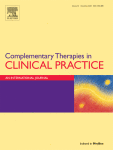
Systematic Review
This review discovered that acupuncture might be a safe and effective adjuvant therapy for individuals with poststroke spastic hemiplegia.
Fan W, Kuang X, Hu J, Chen X, Yi W, Lu L, Xu N, Wang L.

Systematic Review
Acupuncture in combination with rehabilitation may have benefits for the treatment of acute and subacute stroke sequelae in comparison with rehabilitation alone.
Vados, L., Ferreira, A., Zhao, S., Vercelino, R., & Wang, S.
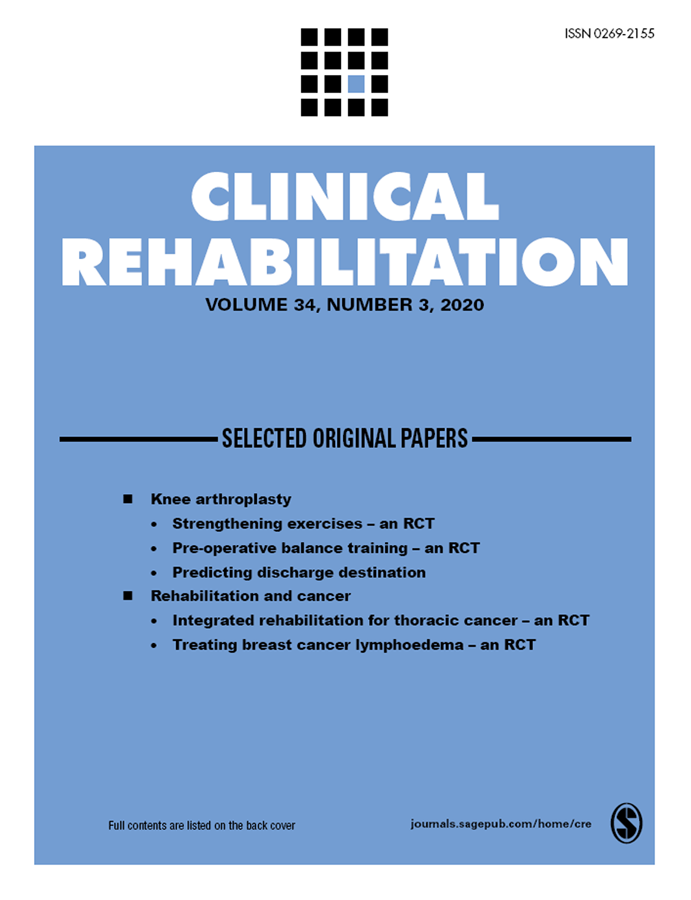
Systematic Review
Current evidence suggests that traditional manual acupuncture integrated with rehabilitation therapy is more effective in alleviating pain, improving limb movement and activities of daily living.
Peng, L., Zhang, C., Zhou, L., Zuo, H. X., He, X. K., & Niu, Y. M. (

Systematic Review
Chai Hu Shu Gan San (a traditional Chinese Medicine) is a promising in treating depression, especially in post-stroke and postpartum cases.
Sun Y, Xu X, Zhang J, Chen Y
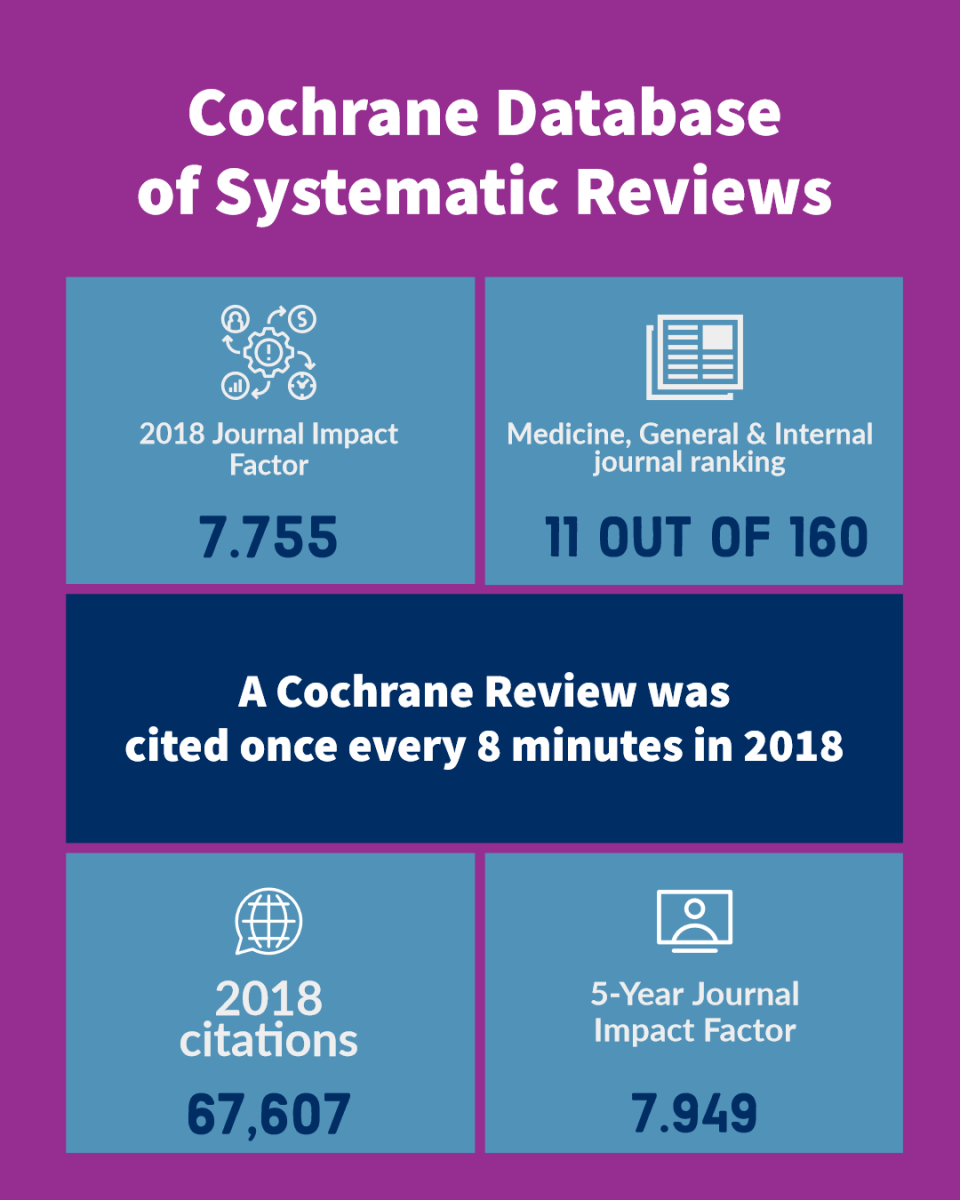
Systematic Review
Acupuncture may have beneficial effects on improving dependency, global neurological deficiency, and some specific neurological impairments for people with stroke in the convalescent stage, with no obvious serious adverse events.
Yang A, Wu HM, Tang JL, Xu L, Yang M, Liu GJ.

Systematic Review
Acupuncture, in combination with regular rehabilitation, may effectively alleviate poststroke shoulder pain more than rehabilitation alone.
Lee, S.-H., & Lim, S. M.

Systematic Review
Our results suggest that acupuncture could be effective for treating insomnia after stroke.
Lee SH, Lim SM
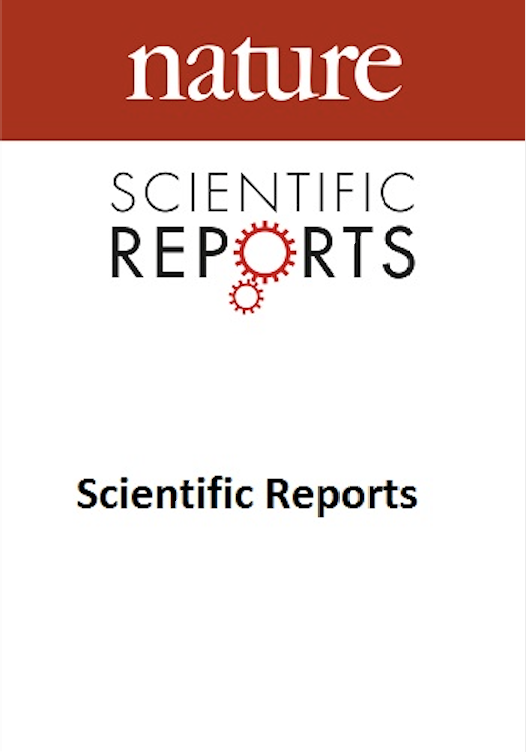
Systematic Review
Acupuncture is a prospective therapy targeting neurogenesis for ischemic stroke.
Lu, L., Zhang, Xg., Zhong, L. et al.
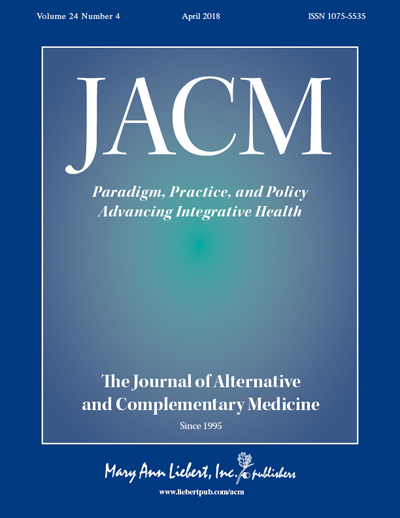
Systematic Review
Acupuncture combined with exercise is effective for shoulder pain after stroke.
Jung Ah Lee, Si-Woon Park, Pil Woo Hwang, Sung Min Lim, Sejeong Kook, Kyung In Choi, and Kyoung Sook Kang.
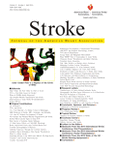
Systematic Review
Randomized clinical trials demonstrate that acupuncture may be effective in the treatment of poststroke rehabilitation.
Ping Wu , Edward Mills , David Moher , and Dugald Seely
Executive Summary
Write an executive summary in the form of a blog article on the topic of "Research into Chinese medicine treatment for Stroke Rehabilitation" summarising the research below and using language that can be easily understood by patients and avoiding medical jargon using a professional and caring tone of voice.
Write an executive summary in the form of a blog article on the topic of "Researched Chinese medicine treatments for Stroke Rehabilitation" summarising the research below in an objective and easy to understand way, and using language that can be easily understood by patients. Group the article into Chinese medicine treatments first, followed by nutrition and other treatments. Avoid using medical jargon and use a professional and caring tone of voice.
Write me a concise but easy to understand executive summary on the topic of "Chinese medicine treatments for Stroke Rehabilitation" based on the following research that I will give you. Your summary should be 2 paragraphs long in Australian English spelling and include references to the studies.
A Systematic Review published in 2022 in the journal Evidence-Based Complementary and Alternative Medicine found that Meta-analysis has strong implications of the effectiveness of tongue acupuncture, especially when combined with conventional therapies, in treating poststroke aphasia. This holistic approach demonstrates significant improvements in patient outcomes. Meta-analysis showed significant heterogeneity in ABC scores, with tongue acupuncture combined with conventional therapies proving more effective. Clinical efficacy also favored tongue acupuncture combined with conventional therapies. CFCP scores showed significant improvement with tongue acupuncture, especially when combined with conventional therapies.
A Systematic Review published in 2022 in the journal Frontiers in Neurology found that Acupuncture shows potential benefits in stroke rehabilitation, particularly for shoulder-hand syndrome post-stroke. Systematic review papers evaluating the effectiveness of any stroke rehabilitation intervention were identified by comprehensive searches across PubMed, EMBASE, CDSR, six Korean databases, and two Chinese databases, as performed up until October 2021. Specific quality assessment tools (AMSTAR 2) were employed to determine the fitness of systematic reviews for inclusion. Furthermore, graphic representations like bubble plots were utilized to effectively visualize and organize scientific evidence on different clinical topics, number of articles, patient inclusion, confidence, and demonstrated effectiveness of interventions. The research paper scrutinizes 48 carefully-selected systematic reviews, performed between 2015 and 2021. These reviews either concentrate on post-stroke cognitive impairment (four systematic reviews) or primarily address post-stroke motor function (forty-four systematic reviews). 19 different interventions from traditional Chinese medicine, with acupuncture being the most prevalent, are methodically inspected. The study notes that the quality of the selected systematic reviews was overall low or very low. Despite this, most reviews did indicate that traditional Chinese medicine interventions, such as acupuncture, appear to possess potential benefits for stroke rehabilitation, particularly with shoulder-hand syndrome.
A Review Article published in 2022 in the journal Current Neuropharmacology found that Acupuncture could help manage different types of depression by increasing neuroplasticity, decreasing brain inflammation, and reducing side effects of conventional antidepressant treatment. The study under review examines the possible mechanisms and clinical effectiveness of acupuncture in the treatment of different forms of depression. To do this, the researchers examined existing studies and evidence involving both human patients and animal models. A significant aspect of the investigation involved assessing how acupuncture influences neuroplasticity within the hippocampus and neural networks, along with probing the role of this non-pharmaceutical therapy in modulating brain inflammation, which had potential implications for alleviating depressive disorders. The discussions of the results indicated that acupuncture showed considerable promise in the relief of primary depression, especially in milder cases. It was also found useful in the management of post-stroke depression, pain-related depression, and post-partum depression. The study noted positive outcomes both when acupuncture was offered as a stand-alone treatment, and when combined with conventional pharmacological treatments. It was observed that the combination of acupuncture and anti-depressant drugs not only improved primary and secondary depressive symptoms but also managed to reduce the side-effects often associated with medication regimens, which are frequent contributors to high dropout rates in pharmacological treatments.
A Systematic Review published in 2021 in the journal Acupuncture & Electro-Therapeutics Research found that Compared with conventional treatment, acupuncture as an adjuvant therapy can significantly reduce the incidence of post-stroke fatigue. A total of 6 RCTs were included in this study, including 426 cases (213 cases in the treatment group and 213 cases in the control group). Our systematic review and meta-analysis suggests that acupuncture combined with conventional rehabilitation therapy is an effective therapy for patients suffering from post-stroke fatigue, which is suitable for clinical promotion and use. However, due to methodological weakness and limited number of RCTs, the results should be interpreted cautiously. Further clinical trials with large sample sizes and a rigorous design are needed.
A Systematic Review published in 2021 in the journal Evidence-Based Complementary and Alternative Medicine found that Acupuncture, when combined with other treatments, is an effective therapy for treating swallowing difficulties experienced after a stroke. In the methodology used for this study, the researchers examined various English and Chinese databases up to March 2020, focusing on randomized controlled trials that used acupuncture or combined acupuncture with other treatments to help stroke patients with dysphagia. Two authors independently assessed and extracted the data. For quality control, the bias risk assessment tool recommended by the Cochrane Collaboration was used to assess each selected study. The researchers then conducted a meta-analysis using RevMan 5.3 software and calculated pooled analyses by the mean difference. Results showed that when compared to a control group, patients who underwent acupuncture combined with other treatments experienced an improvement in their ability to swallow as measured by different scales and tests. No serious adverse effects were reported in the studies, indicating that acupuncture is not only effective but also safe as a treatment method for dysphagia following stroke.
A Systematic Review published in 2021 in the journal Evidence-Based Complementary and Alternative Medicine found that Acupuncture combined with rehabilitation was more effective in improving the motor function and the ability of daily living. The mechanism for the effects of acupuncture in the improvement of motor function and activity of daily life may be explained by two reasons. First, acupuncture can directly enhance the motor function and daily life of stroke patients. Acupuncture has been shown to lead to a higher improvement in motor function than conventional treatment. Acupuncture when combined with rehabilitation may have a positive effect on motor function, activity of daily life, neurological deficits, and spasticity. Indeed, the meta-analysis concluded that no matter what kind of acupuncture therapy was combined with rehabilitation, it was better than the rehabilitation group when it came to significantly improving the activity of daily life of patients after ischaemic stroke. Second, acupuncture may indirectly improve the motor function and daily living ability of stroke patients by improving the symptoms of unilateral neglect and making them aware of their limbs. Acupuncture points may be the more intensive parts of the sensory organs that produce needle sensation. Acupuncture sensation is continuously transmitted to the central nervous system through the peripheral receptors of acupuncture point of contact, which facilitates new cognitive neural pathways for effective information, processing, and analysis, which may be one of the mechanisms for improving the perception of an injured hemisphere and alleviating the symptoms of unilateral neglect in patients.
A Systematic Review published in 2020 in the journal Acupuncture in Medicine found that Acupuncture combined with antidepressants showed a more favourable effect on the treatment of post-stroke depression than antidepressants alone. Thirteen randomized controlled trials (RCTs) involving 904 participants were included in the study. The results of this meta-analysis showed that, compared with antidepressants alone, acupuncture combined with antidepressants led to a significant decrease in the HAMD score, had a better effective rate and lower National Institutes of Health Stroke Scale (NIHSS) scores, and led to a significant increase in the Barthel index scores.
A Systematic Review published in 2020 in the journal Complementary Therapies in Clinical Practice found that This review discovered that acupuncture might be a safe and effective adjuvant therapy for individuals with poststroke spastic hemiplegia. Researchers retrieved 2452 articles in total, after screening, thirty-eight studies with 2628 participants of were included. In this meta-analysis, twenty-seven trials revealed that acupuncture therapy was associated with an increase in FMA scores compared with rehabilitation training (RT).
A Systematic Review published in 2018 in the journal Acupuncture in Medicine found that Acupuncture in combination with rehabilitation may have benefits for the treatment of acute and subacute stroke sequelae in comparison with rehabilitation alone. A systematic review was carried out. A search was conducted in March 2014 using PubMed, Medline, the Cochrane Library, Chinese National Knowledge Infrastructure database (CNKI) and Wanfang databases. English and Chinese language articles published within 10 years of the search were reviewed for inclusion. Randomised control trials comparing combined treatment with acupuncture and rehabilitation and rehabilitation alone in patients with acute or subacute stroke (onset until 3 months after stroke) were included in this review. Three review authors independently checked the titles and abstracts of trials for inclusion based on selection criteria. Studies measuring changes of motor function, activities of daily living, neurological deficit or spasticity/range of motion during the treatment period and at the end of follow-up were included. 17 trials met the inclusion criteria, of which five were of good quality. 14 trials had results favourable to acupuncture combined with rehabilitation, compared with conventional rehabilitation treatment alone.
A Systematic Review published in 2018 in the journal Clinical Rehabilitation found that Current evidence suggests that traditional manual acupuncture integrated with rehabilitation therapy is more effective in alleviating pain, improving limb movement and activities of daily living. A total of 20 studies involving 1918 participants were included in this study. Compared to rehabilitation therapy alone, the combined therapy significantly reduced pain on the visual analogue scale and improved limb movement on the Fugl–Meyer Assessment scale and the performance of activities of daily living (ADL) on the Barthel Index scale or Modified Barthel Index scale. Of these, the visual analogue scale score changes were significantly higher favoring the combined therapy after treatment, with severe heterogeneity.
A Systematic Review published in 2018 in the journal BMC Complementary Medicine and Therapies found that Chai Hu Shu Gan San (a traditional Chinese Medicine) is a promising in treating depression, especially in post-stroke and postpartum cases. The review assessed the efficacy of Chai Hu Shu Gan San, a traditional Chinese medicine, in treating depression. Out of 560 initial studies, 42 trials met inclusion criteria. These studies were conducted in China from 2006 to 2016, involving 3234 patients with depression. Chai Hu Shu Gan San demonstrated better efficacy compared to controls, especially in post-stroke and postpartum depression. However, the methodological quality of the included studies was assessed as low, with high risks of bias. While Chai Hu Shu Gan San showed promise, further rigorously designed randomized controlled trials are needed for a conclusive evaluation of its safety and efficacy in treating depression.
A Systematic Review published in 2016 in the journal Cochrane Database of Systematic Reviews found that Acupuncture may have beneficial effects on improving dependency, global neurological deficiency, and some specific neurological impairments for people with stroke in the convalescent stage, with no obvious serious adverse events. Although acupuncture may have positive effects in stroke rehabilitation and there were no reported serious adverse events, the small number of low quality studies and the probability of publication bias means that there was insufficient evidence to support the routine use of acupuncture for people with subacute or chronic stroke.
A Systematic Review published in 2016 in the journal Evidence-Based Complementary and Alternative Medicine found that Acupuncture, in combination with regular rehabilitation, may effectively alleviate poststroke shoulder pain more than rehabilitation alone. The study utilized seven databases to find existing research studies concerning the use of acupuncture in relieving poststroke shoulder pain, with no language limitations imposed on the search. The primary focus was on randomized controlled trials that compared the impact of acupuncture with conventional controls. The Visual Analogue Scale (VAS) and Fugl-Meyer Assessment (FMA) were primarily used to measure the extent of the pain and effectiveness of the treatments. The results of the analysis of these studies suggested a definitive trend indicating the adoption of acupuncture alongside regular rehabilitation treatment enhanced the remedial effect on poststroke shoulder pain. The reduction in pain as reported by the VAS, improvements in the FMA, and overall efficacy rates showed a marked improvement when acupuncture was incorporated with the standard rehabilitation treatments when compared to those treatments on their own. However, the study does acknowledge that while the results point towards the effectiveness of acupuncture, the results should be interpreted with caution.
A Systematic Review published in 2016 in the journal BMC Complementary Medicine and Therapies found that Our results suggest that acupuncture could be effective for treating insomnia after stroke. A total of 165 studies were identified; 13 RCTs met our inclusion criteria. Meta-analysis showed that acupuncture appeared to be more effective than drugs for treatment of insomnia after stroke, as assessed by the PSQI and by the efficacy standards of Chinese medicine. Intradermal acupuncture had significant effects compared with sham acupuncture, as assessed by the ISI and the AIS.
A Systematic Review published in 2016 in the journal Scientific Reports found that Acupuncture is a prospective therapy targeting neurogenesis for ischemic stroke. Our findings indicate that acupuncture ameliorates neurological deficits and reduces brain edema in experimental ischemic stroke and the mechanisms positively correlate with endogenous neurogenesis, in which acupuncture therapy can promote the proliferation, migration and differentiation of NSCs.
A Systematic Review published in 2012 in the journal The Journal of Alternative and Complementary Medicine found that Acupuncture combined with exercise is effective for shoulder pain after stroke. It was found in this review of reported RCTs that acupuncture is an effective treatment for shoulder pain after stroke. Acupuncture can be considered as an adjuvant therapy in combination with exercise for rehabilitation of the stroke patients who are suffering from shoulder pain. Further trials concerning this topic should be conducted according to the highest methodological standards for certainty.
A Systematic Review published in 2010 in the journal Stroke found that Randomized clinical trials demonstrate that acupuncture may be effective in the treatment of poststroke rehabilitation. Randomized clinical trials demonstrate that acupuncture may be effective in the treatment of poststroke rehabilitation. Poor study quality and the possibility of publication bias hinder the strength of this recommendation and argue for a large, transparent, well-conducted randomized clinical trial to support this claim and implement changes to clinical practice.
Moderation Tools
Topic
Sign In
Users not signed in are limited to viewing the 5 most recent items of content.